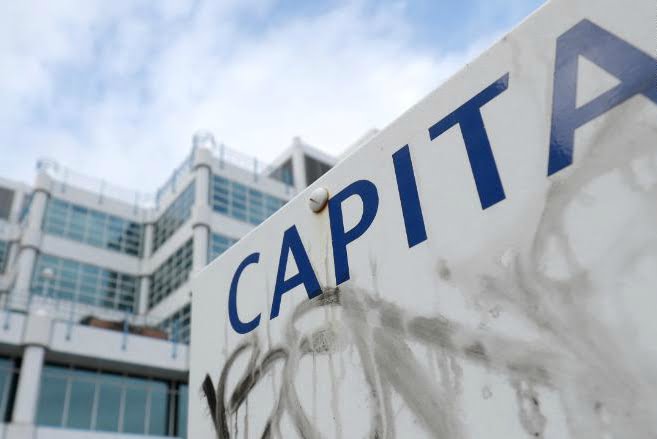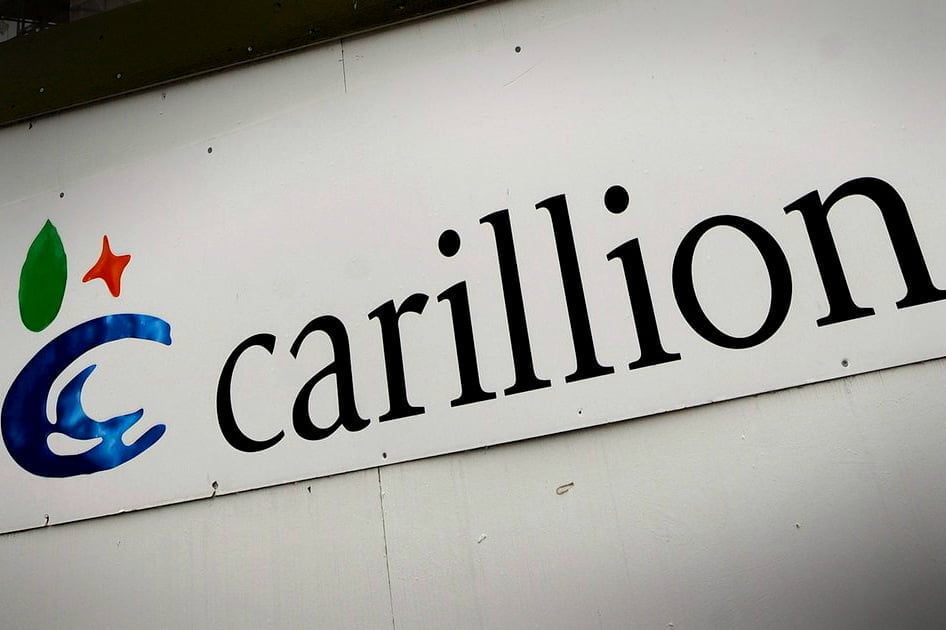The whole rotten system of outsourcing is collapsing. Parasites like Capita, G4S, and Serco should be nationalised.
The collapse of Carillion should not be surprising. But it has rightly shaken public faith in the ‘business model’ of outsourcing – the reliance on the market as a means of providing public services.
Desperate attempts are being made to isolate Carillion as one bad apple, by blaming the fiasco on the company’s management. But this thin veneer is easily seen through. Behind the facade lies the rotten reality of a system dictated by profit rather than social need.
Broken status quo
Outsourcing has become the status quo; what we are told to expect from a modernised society. The tentacles of private profit stretch from immigration detention centres to schools; from street cleaning to healthcare.
Arising under Thatcher, and championed by successive Tory and New Labour governments, it is emblematic of the logic of capitalism.
As a result of outsourcing, huge swathes of the public sector – previously off limits to the City of London’s vultures – are opened up for plunder.
It is presented as ‘efficient and cheap’, since we are told that the market regulates itself. Again, this has been proven to be complete fiction.
The National Audit Office, in reviewing more than 700 existing private contracts, has found little evidence supporting the claim that the private sector delivers savings to the taxpayer. In fact, it has been revealed that the cost of financing some projects was around 40% higher than if they were financed by government borrowing.
The real meaning of the ‘efficiency’ of outsourcing, therefore, is how well it channels money into the pockets of a few billionaires. Added to this is the ability of the bosses, through outsourcing, to divide workers, attack trade union organisation, and therefore drive down wages.
Gambling with taxpayers money
 By isolating the case of Carillion, the Tories hope to defend their trusted ‘business model’, which only profits the filthy rich. But the cracks in the system are spreading.
By isolating the case of Carillion, the Tories hope to defend their trusted ‘business model’, which only profits the filthy rich. But the cracks in the system are spreading.
For example, shares in Capita, another monster outsourcer, plummeted almost 50% earlier this year, reaching a 15-year low. The company is now worth barely more than its net debt. With Capita being awarded ten times as many contracts as Carillion over the last two years, people should rightly be worried about the fate of our public services!
The self-described competitive market has led to nothing other than a handful of outsourcing giants fighting between themselves to win contracts offered by the compliant Tories. In the last two years, over 80% of all public sector outsourcing contracts have been awarded to just five companies.
The criteria in deciding which corporate parasite is not the promised quality of the service, but whichever contractor is able to deliver the service most cheaply (i.e. at the expense of their workers). This is just one of many ways in which the ruling class shifts the costs of the crisis of capitalism onto the shoulders of the working class.
This process has turned outsourcing contractors into incessant gamblers, seeking big contracts in order to maintain bonuses and dividends for their shareholders. Boards are signing off on deals without considering the sustainability of the projects.
And the Tories are doing all in their power to facilitate this. After Carillion’s profit warning last July, the company was awarded eight contracts as significant as the HS2 high speed rail line. Even this help from the Tories, however, was not enough to keep this gigantic Ponzi scheme afloat.
Risk for the working class
 This demonstrates the fragility in the outsourcing industry as a whole. Outsourcing monopolies have little-to-no tangible assets. They borrow against the value of their acquired name, which – if the business is failing – has no value at all.
This demonstrates the fragility in the outsourcing industry as a whole. Outsourcing monopolies have little-to-no tangible assets. They borrow against the value of their acquired name, which – if the business is failing – has no value at all.
The idea that risk is shifted from the public sector to the private sector has been proven to be another mirage. The bill ultimately reverts back to the state, who are expected to maintain public services. The real risk is borne by the workers, many of whom are left unemployed, or on worse terms (if they’re lucky enough to be transferred).
Take the London Olympic Games. Thousands of soldiers and hundreds of police had to be drafted in at a moment’s notice by the government, due to the failures of G4S to supply the amount of security staff agreed.
Or the London Underground. At least £170 million of taxpayers’ money was wasted by Metronet’s failure to maintain and upgrade the services.
Many other examples can be cited. All inescapably lead to the same conclusion: the only objective of outsourcing companies is to maximise profits for the capitalists.
Nationalisation
In a break from decades of cross-party consensus, Jeremy Corbyn has critically challenged this toxic policy. “It is time to put an end to the rip-off privatisation policies,” Corbyn has asserted. “[These have] fleeced the public of billions of pounds”.
In order to stop the perpetual outsourcing crisis, Labour needs to commit to immediately bring back in-house all of these contracts. Otherwise we will be expected to bail out these parasites in some form or other again and again.
The giant outsourcing companies – like Capita, G4S, Serco, etc. – should be nationalised, under workers control, with no compensation to the fat-cat shareholders who have robbed us for decades.






